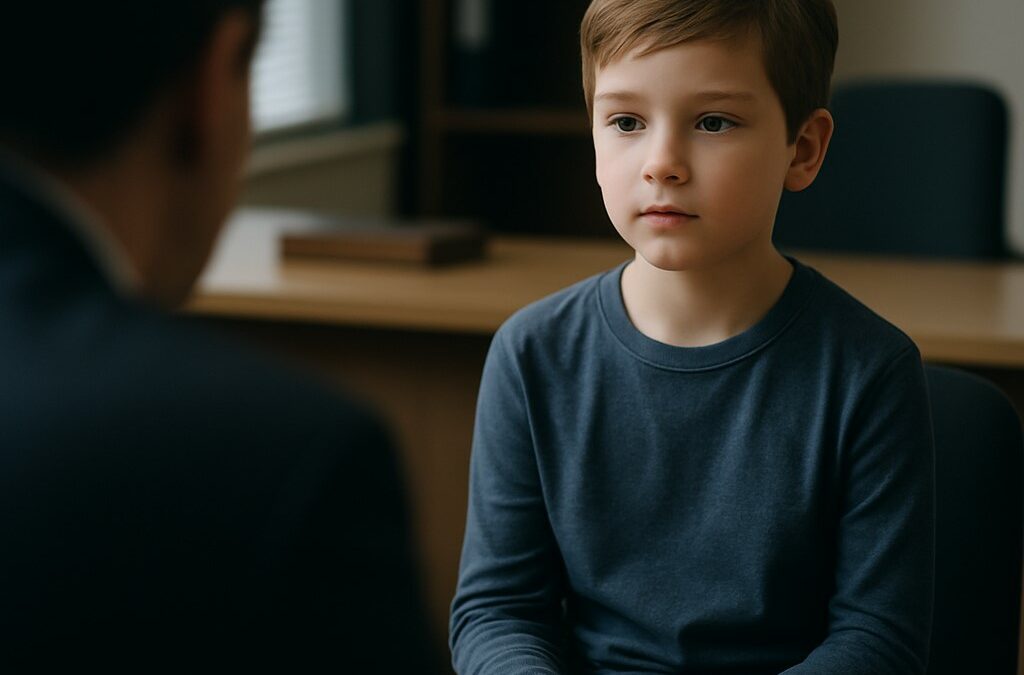1. The main principles of the child’s right to be heard
The right of children to be heard in legal proceedings concerning them is now a fundamental principle of French law, in harmony with France’s international commitments, notably the International Convention on the Rights of the Child of November 20, 1989 (CRC).
This Convention expressly states that every child who is capable of forming his or her own views has the right to express those views freely in all matters affecting the child, and to be heard in any judicial or administrative proceedings affecting the child, the views of the child being taken into consideration in accordance with the age and maturity of the child.
In French law, article 388-1 of the Civil Code, introduced by the law of January 8, 1993 and reinforced by the law of March 5, 2007, stipulates that in any proceedings concerning him/her, a minor capable of discernment may be heard by the judge, alone or accompanied by a lawyer or a person of his/her choice.
This hearing is automatic if the minor so requests.
2. In what cases can the child be heard?
The hearing concerns a wide range of proceedings before the family court judge (JAF), whenever the decision may have an impact on the child. It is particularly important in the following situations:
-
-
- Fixing the child’s residence with one of the parents following a separation or divorce;
- Organization of visiting and accommodation rights;
- Issues relating to the exercise of parental authority;
- Delegation or withdrawal of parental authority;
- Relations with third parties (grandparents, other family members);
- Change of first name or marital status, adoption, parentage, etc.
-
3. Who can request a child’s hearing?
-
-
- The child himself/herself, if deemed « capable of discernment ».
- The judge may also decide to hear the child on his or her own initiative, or at the request of the parties or the public prosecutor.
- Parents or legal guardians may also request a hearing, but this is not automatic; the judge decides whether to grant it.
-
4. What is « capacity for discernment »?
The law does not set a minimum age for a hearing.
It is the judge who assesses, on a case-by-case basis, whether the child is capable of discernment, i.e. whether he or she has sufficient maturity and understanding to express a useful opinion in the proceedings.
Age is only one indication, psychological maturity being the decisive criterion.
There is no minimum age, and no age above which a hearing is mandatory.
The judge assesses the young person’s degree of maturity and understanding on a case-by-case basis.
When refusing a hearing, the judge must explain precisely why the child is not capable of discernment; he or she cannot simply refer to the child’s age to rule out a hearing.
5. The obligation to inform the child of his or her rights
Parents or legal guardians are obliged to inform the child of his or her right to be heard and to be assisted by a lawyer.
The judge ensures that this information has been provided, and this obligation to inform must be mentioned in the proceedings.
In the case of divorce by mutual consent, the agreement must expressly state that the child has been informed and that he or she does not wish to make use of the right to be heard, on pain of nullity.
6. Practical details of the hearing
-
-
- By whom? In principle, the judge hears the child in person. He may delegate the hearing to a third party (social worker, psychologist, etc.) if the child’s interests so require, but this third party must have no connection with the child or the parties.
- What is the procedure? The child can be heard alone, with a lawyer or a person of his or her choice. The judge may refuse to allow the chosen person to be present if he or she exerts too much influence over the minor. If the child wishes to be assisted by a lawyer, but does not know one, the judge will ask the President of the Bar to appoint one.
- At what point? The child can ask to be heard at any stage of the proceedings, by simply writing to the judge or making an oral statement at the hearing, without any particular formalities.
- Minutes and adversarial process: A record of the hearing is drawn up, respecting the adversarial principle. This document can be consulted by the parties and must be communicated as part of the proceedings.
-
7. What are the consequences for the judge’s decision?
The fact that the child is heard does not mean that he or she decides for the judge.
The hearing allows the child to express his or her feelings and needs, but the judge remains free to make his or her own decision, and must always seek the child’s best interests.
He is not obliged to follow the child’s opinion, even if it is taken into account.
Practical advice for parents and children
-
-
- If your child is involved in family proceedings, always inform him/her of his/her right to be heard.
- Leave the child free to ask to be heard or not, without pressure or influence.
- If the child wishes to be accompanied or assisted, a lawyer can be appointed, and legal aid is available.
- Being heard does not mean deciding, but rather allowing the child to play an active role in the proceedings.
-
Hearing the child before the family court is a major step forward in ensuring that the child’s voice and best interests are taken into account in separation and family disputes.
If you have any questions about the hearing procedure, please do not hesitate to make an appointment.
© Photo : IA
